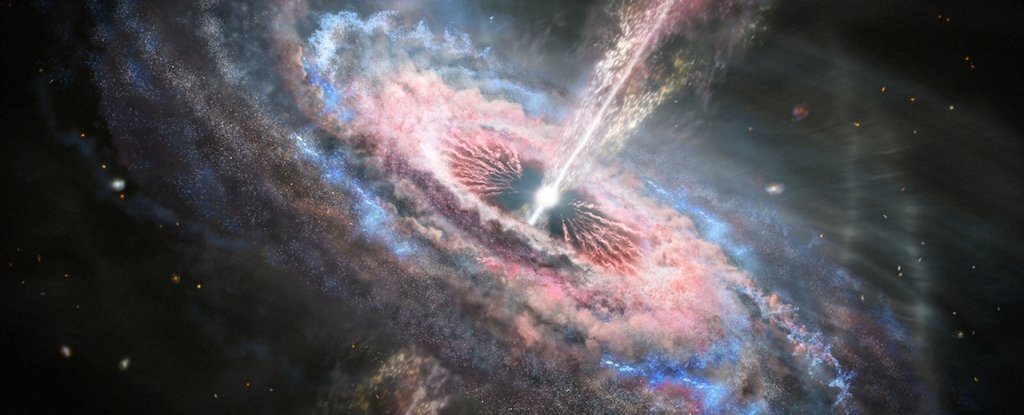MI weekly selection #369
MI weekly selection #369

Radiation tsunamis may be coming from quasars
Quasars may be releasing tsunami-like bursts of radiation that can push material from their home galaxies outward and may inhibit star formation, according to findings in six studies published in The Astrophysical Journal Supplement Series. “The amount of mechanical energy that these outflows carry is up to several hundreds of times higher than the luminosity of the entire Milky Way galaxy,” said Nahum Arav, an author of one of the studies.
Why female mammals outlive males
Female mammals outlived males in 60% of 134 populations and 101 species studied. Study authors say male mammals use up their resources on growth and sexual trait maintenance and that environmental conditions might play a role in lifespan differences.
Bariatric surgery may change microbiome
Roux-en-Y gastric bypass may result in weight loss and changes to the body’s microbiome. Those changes would be associated with changes in food fermentation, such as breakdowns of fats and bile acids, which are linked to better metabolism.
Graphene sheets become ultrasensitive cancer sensors
Wrinkled graphene sheets may be especially promising as sensors for detecting and treating cancer. “When you crumple graphene and create these concave regions, the DNA molecule fits into the curves and cavities on the surface, so more of the molecule interacts with the graphene and we can detect it,” said Mohammad Heiranian, a co-author.
Snakes evolved venom to catch prey, not for defense
Researchers say snake venom was not originally intended to be used by the reptiles as a defensive measure. The venom was intended as a weapon to slay prey.